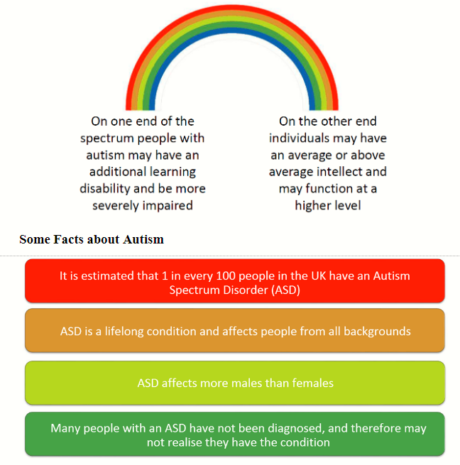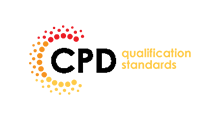What is Autism?
Autism is a lifelong disability which affects how people communicate and interact with the world. There are approximately 700,000 autistic adults and children in the UK. Autistic people see, hear and feel the world differently to other people. If you are autistic, you are autistic for life; autism is not an illness or disease and cannot be ‘cured’. Often people feel being autistic is a fundamental aspect of their identity.
Autism is a spectrum condition. All autistic people share certain difficulties, but being autistic will affect them in different ways. Some autistic people also have learning disabilities, mental health issues or other conditions, meaning people need different levels of support. All people on the autism spectrum learn and develop. With the right sort of support, all can be helped to live a more fulfilling life of their own choosing.
What is Autistic Spectrum Disorder (ASD)?
An Autistic spectrum disorder (ASD) is a developmental disorder which affects the way a person communicates with and relates to other people and the world around them. The way in which people are affected varies from one individual to another and by age and intellectual functioning.
Children with ASDs are affected in a variety of ways and to very different degrees. This is why it’s called ‘the autistic spectrum’. Autism can affect children with any level of intellectual ability, from those who are profoundly learning disabled, to those with average or high intelligence. So, having an ASD doesn’t necessarily mean that you have learning difficulties.
The more seriously affected children at one end of the spectrum have learning difficulties as well and require high levels of support. At the other end of the spectrum, some people with Asperger syndrome or ‘high-functioning autism’ are very intelligent academically. They may go on to be successful in their chosen field. However, they still experience significant social and communication difficulties.
- ‘It’s as if your child’s brain has been wired up in a different way to usual. This doesn’t change, but the ways in which it shows itself, and the extent to which it shows itself, do change.’
- ‘It’s nothing that you’ve done. A child doesn’t become autistic. It’s in them already. They don’t learn to be autistic.’
How common is autism?
Autism is much more common than most people think. There are around 700,000 autistic people in the UK – that’s more than 1 in 100. People from all nationalities and cultural, religious and social backgrounds can be autistic, although it appears to affect more men than women.
How do autistic people see the world?
Some autistic people say the world feels overwhelming and this can cause them considerable anxiety.
In particular, understanding and relating to other people, and taking part in the everyday family, school, work, and social life, can be harder. Other people appear to know, intuitively, how to communicate and interact with each other, yet can also struggle to build rapport with autistic people. Autistic people may wonder why they are ‘different’ and feel their social differences mean people don’t understand them.
Autistic people often do not ‘look’ disabled. Some parents of autistic children say that other people simply think their child is naughty, while adults find that they are misunderstood.
Autism is a ‘hidden disability’, meaning it is not easy to recognize when someone has the condition. When you see the following pattern (on a wristband, card or mobile device) it means someone has autism and wants you to know so that you can support them:
 Individuals with autism have difficulty in accessing sport and leisure activities and other services. Support from staff can make a huge difference, understanding autism has the power to change lives. The information to follow is provided to help you to understand autism and ways in which you can support children and adults with the condition.
Individuals with autism have difficulty in accessing sport and leisure activities and other services. Support from staff can make a huge difference, understanding autism has the power to change lives. The information to follow is provided to help you to understand autism and ways in which you can support children and adults with the condition.
Characteristics of an Autistic Child

Other Names of Autism Spectrum Disorder
Autism Spectrum Disorders are also known by other names, including:

Autism is referred as ‘Spectrum’ because of the way in which the condition affects individuals can vary






-
Add a note